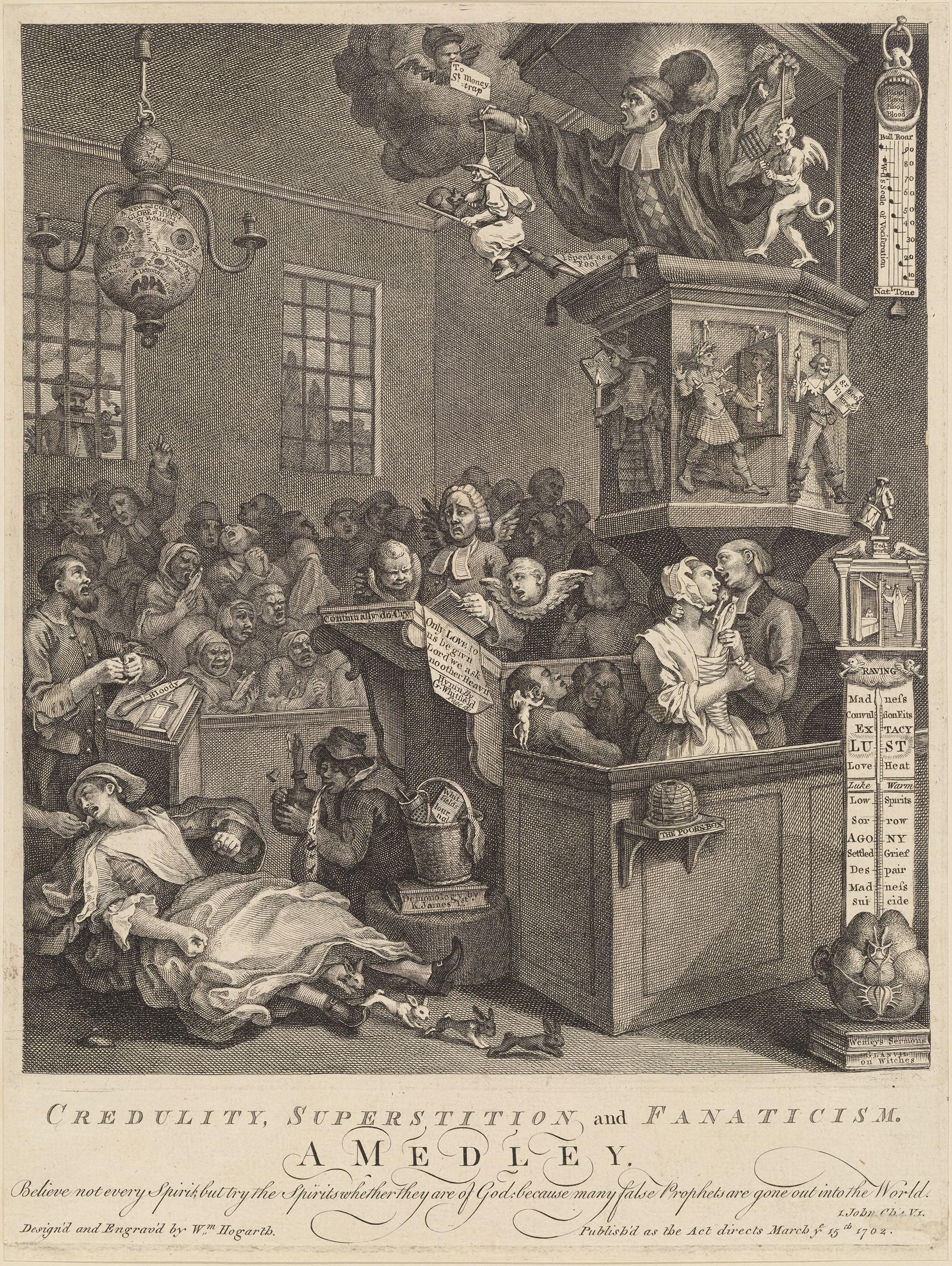Manifestering

William Hogarth, Printmaker:
Credulity, Superstition, and Fanaticism. A Medley.
(1762)
" … never grant us any deeper understanding."
Publishing exists as an essentially infinite field. From an author's perspective, interacting with it carries all the context markers of any encounter with any infinite, by which I mean that there's no reasoning with it. Any individual interaction holds an essentially random possibility for any outcome: positive, negative, but mostly indifferent. In this way, at least, publishing does not quite qualify as a classic system. I might better describe it as a field and its products as perturbations. Something happens, but whatever occurs was never beforehand predictable. One casts into Publishing without ever knowing what might become of the encounter. One might dream of great good fortune, but there's no guaranteeing any outcome. The best anyone can promise might be an entry, an attractive offering. Whether anyone reads the damned thing, a matter of marketing, by which I mean a matter of credulity, superstition, and fanaticism: mysticism.
Ask any author how he happened to become successful, and the honest ones will answer with complete mystery. It was, of course, an accident. No concrete explanation could possibly exist to describe how Publishing worked in that instance. Even the author, who persisted through two and a half dozen rejections before finally stumbling upon an imprint willing to accept his manuscript, cannot explain how or why his book took off. That publisher cast the product out into a randomly vibrating market, and that work struck an attractive chord. A convergence of time and place occurred, and nobody, except by superstition, ever successfully explains how time and space converge. It just happens, though it more often doesn't.
An author must steep himself in mysticism to maintain his position in this world. He must believably imagine that his work matters, that it carries potential far beyond his keyboard, that or live a detached monk-like existence. He creates on the promise he imagines and must mostly loses the ability to crisply distinguish between imagination and promise. Neither provable, he must remain open and credible to the otherwise incredible. He deals first in this first-person fiction, whatever genre he's writing. Nonfiction might require him to produce the greatest quantities of such self-deception, its premise inevitably pure ruse because he must first filter whatever he produces through himself. He writes as if no observer exists while steadfastly observing himself doing this.
We might learn most whenever observing ourselves interacting with an infinite. We, of course, insist upon sticking with finite rules for these engagements, projecting causes and effects and generally confusing our influence with results. We deserve whatever goodness might emerge and begrudge whatever evil might appear. We firmly believe that we're working toward some state of mastery or grace, that we will, with diligent practice, come to understand, if not precisely, all things, but at least these. We cast ourselves as the hero in waiting or the failed conquerer, neither characterization more accurate than the other. We puff up ourselves with unsupportable beliefs and then come to grief or greatness without having very much influenced either result. We should properly believe that we're manifesting our futures though we're more probably Manifestering them. May God, in infinite wisdom, never grant us any deeper understanding. Amen.
©2023 by David A. Schmaltz - all rights reserved


